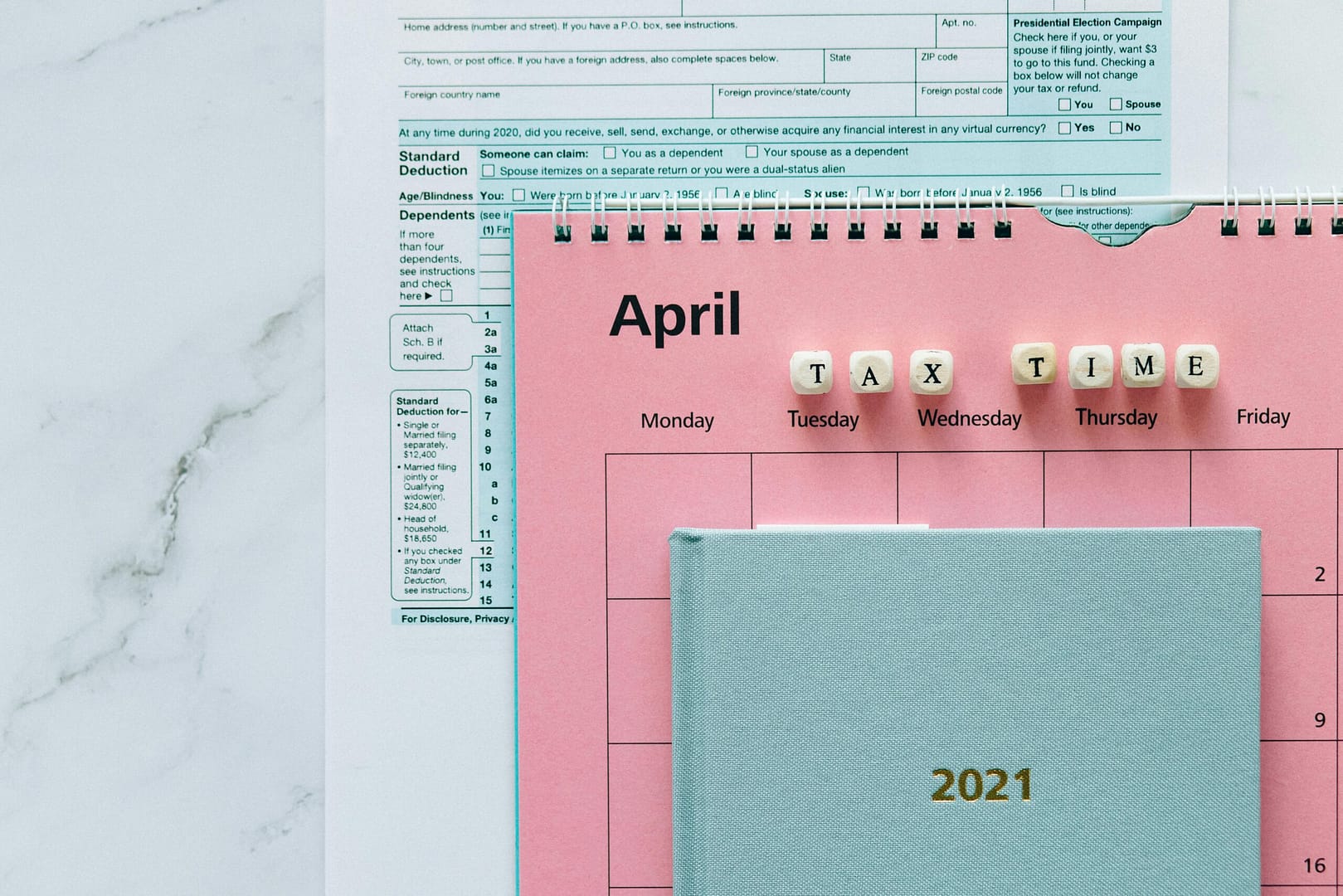French Tax Returns
The French tax return is completed over spring and your income tax will be issued in September. Who must complete a French Tax return? Where do I file a French Tax return? What must be declared? Here is general information about French Tax returns.

Last update : 10/04/2025
Do I have to complete a French Tax return?
If you are a French resident or are considered to be a French fiscal resident, then you must complete a tax return, whatever the income situation. So even if you have no income, you must complete a Tax return.
If you live abroad but earn French income, then you must complete a French Tax return too.
When and how do I file a French Tax return?
You must file a Tax return per household. The declarations will begin in April and the deadline will depend on your département of residence. A calendar will be posted on the official websites.
If you are completing a French Tax return for the first time, you must fill in a paper file. You will have to send the forms into your local Tax office. The 2025 forms for 2024 income are not yet available but will soon be on the Impôts website.
If you have already done a French Tax return then you will file this year’s online on your Impôt Account.
Tax declaration calendar 2025 :
Online service opening : 10th of April 2025
Paper filing deadline : 22nd of May 2025
Online filing deadlines:
- Départements 01 to 19 and non-residents : 22nd of May 2025
- Départements 20 to 54 : 29th of May 2025
- Départements 55 to 976 : 5th of June 2025.
What income must I declare on my French Tax return, and where?
The French income Tax year runs from 1st of January until 31st of December. When completing your French Tax return as a French resident, you must declare your worldwide income.
Here are the main types of income and the forms that have to be filled in accordingly (please note these are still the forms for 2023 income as the ones for 2024 are not yet online!):
- Form 2042, this is the main form everyone must complete, it summarizes all the income you have had over the year.
- Form 2042C, this form is used for any additional income to the previous one.
- Form 2042-C-PRO, this form is to be completed if you have had any “non-salaried” income, aka self-employed income.
- Form 2042-RICI, this form is to be completed if you are entitled to a tax credit or tax reduction.
- Form 2047, this form allows you to declare all your foreign income.
- Form 3916, this is to declare all bank accounts, life insurance policies and digital assets contracts opened, held, used or closed abroad during the year. This is mandatory too.
If you do have foreign income, then you must check if the country your income is from has a Double Tax Treaty or not. If it does, then you can apply the conditions of this Double Tax Treaty. You will find more information about foreign income taxation here.
What expenses lead to a tax reduction or tax credit?
Some expenses can lead to tax reduction or tax credit, here are the most current ones.
- A 10% reduction of your salaried income is automatic and considered to be charges. If your charges are higher (petrol, tolls, meals, etc.) then you can opt for les “frais au réel”which means you declare your actual costs and they will be deducted from your salaired income.
- Childcare: whether it’s an assistante maternelle agrée (childminder), a crèche (nursery), the centre de loisirs or the périscolaire, you can claim these expenses and get a tax credit of 50% of the amount spent over the year (max of 3,500€ /year).
- Services à la personne scheme: a gardener, cleaner, small jobs around the house, etc. If the worker is registered with this scheme you can benefit of a 50% tax credit of the overall amount spent that year (max of 12,000€).
- Charitable donations: they can give you a tax reduction of 66% to 75% of the amount paid depending on the charity (within the limit of 20% of taxable income).
Read more about this here.
How much tax will I pay?
This depends on your income and your household situation.
Here is the general rule, for French residents :
- 1 adult represents 1 “part” (a share) and every child an extra 0.5 “part”. So, for example, a couple would be 2 parts (1+1) and a couple with 2 children 3 parts (1+1+0,5+0,5).
- The global income that is taxed according to the tax table will be divided by the number of parts and the percentages will be applied.
- The total amount will then be multiplied again by the number of parts.
This only applies to income subject to the tax table other income may have flat rates.
If you’d like to estimate your tax liability, the government has set up a simulator you will find here.
Here is the Tax table for 2025 :
Income | Tax rate |
From €0 to €11,497 | 0 % |
From €11,498 to €29,315 | 11 % |
From €29,316 to €83,824 | 30 % |
From €83,825 to €180,294 | 41 % |
Above €180,295 | 45 % |
When will I receive my Avis d'Impôts and pay taxes?
If you have filed your tax return on time, you will be receiving your Avis d’Impôts end of July 2025. By post or on your online account depending on your situation.
If you are due a tax refund, this will be transfered to your account aither on 23rd of July or 6th of August 2025.
If you are due to pay under 300€ of tax, you will pay on the 25th of September 2025 (if a direct debit is set up).
If you are due to pay over 300€ of tax, then the total amount will be paid over 4 dates : 25th of September, 23rd of October, 25th of November and 26th of December.
Assistance filing my tax return
France Admin can assist with filing your tax return. If you’d like to get a quote, please send an email to tax@franceadmin.com with a list of your income streams.
If for any reason we cannot assist with your tax return, we will recommend a trusted partner that can.
*** This article was written to provide general information and doesn’t aim to guide you in declaring your French Taxes. The system is complex and every personal and professional situation is different.
FAQ
Am I a French fiscal resident
You are considered to be a French fiscal resident if :
- Your main residence is in France (ie you live in France more than 6 months of the year).
- Your main professional activity is in France.
- The center of you economic interest is located in France (ie you’ve made your major investments in France or the headquarters of your business, from which you administer your property, is in France)
What exchange rate should I use for foregin income?
When declaring your foreign income, you must declare it euros. There are two options:
- Declare at the exchange rate of the Banque de France when you receive your income.
- Declare at the average exchange rate for the year.
You can get in touch with your local tax office to ask for the yearly rate.
What's the difference in between Tax credit and tax reduction
A tax reduction is deducted from the income Tax (according to the Tax table). Tax reductions are deducted from the tax before deduction of any tax credits and non-dischargeable levies or withholdings; they cannot give rise to a refund.
If the amount of the tax reduction is greater than the amount of the tax, there can be no refund: your tax is therefore reduced to €0.
A Tax credit is also deducted from income Tax. Unlike the Tax reduction, if the tax credit is greater than the amount of tax, then you will receive a refund.
What about my “Prélèvement à la Source” ?
If you have been paying a monthly prélèvement à la source, or Tax at source, then this will automatically be deducted from the amount of tax you owe. Every year when you file your tax declaration, the rate of your “Tax at source” is re-evaluated. You can also decide to adjust it yourself via your online Impôts account.
Must I declare rental income?
Yes, you must declare this along with the rest of your income.
- Microfoncier (gross turnover < €15,000) : you will benefit from a 30% deduction on the gross turnover, considered to be charges. Form 2044.
- Régime réel (mandatory if gross turnover > €15,000) : you will declare your income and deduct charges. Form 2044 & 2044 spéciale
- Régime micro – Form 2042-C-PRO
The régime micro is only available if your rental income is below certains thresholds, more info here.
- Régime réel Form 2042-C-PRO and liasse n°2031
You can opt for this régime if your income is below the micro thresholds. If it’s above then this régime is mandatory.
Resources :
- MINISTÈRE DE L’ÉCONOMIE DES FINANCES ET DE LA SOUVERAINETÉ INDUSTRIELLE ET NUMÉRIQUE, Déclaration de revenus 2023 : les réponses aux principales questions que vous vous posez
- RÉPUBLIQUE FRANÇAISE, Imposition des revenus de source étrangère
Throughout this article there are links with extra ressources.
